The Scottish Affairs Committee has been told that shipyards are being hampered by a lack of access to affordable finance and by fragmented planning between civil and defence projects, leaving them disadvantaged against heavily subsidised international rivals.
Dave Doogan MP pressed the point repeatedly during a session on 16 July, asking whether foreign state subsidies were giving overseas yards an insurmountable advantage. “State subsidies of foreign yards are not even subtle; they are explicit. Meanwhile, in the UK, everything is getting played with a straight bat, and we wonder why we lose orders abroad. Is that a fair assessment?” he asked.
Tom Chant, Chief Executive of the Society of Maritime Industries, was blunt in his reply: “Yes.”
Chant argued that solving the finance problem would transform the outlook for UK shipbuilding. “If you sorted out the broad finance issues, that would do a huge amount for the yards. There is absolutely no doubt about that. If you can then provide the infrastructure, productivity investments and support that they would basically match fund and work with as well, then you would begin to develop a pipeline.” He added that such measures would increase productivity, boost capacity, and even create export opportunities for British yards in specialist European markets.
Doogan suggested that the UK should focus on niche, lower-volume sectors rather than trying to compete with Asian mass producers. Chant agreed, pointing to “the renewable sector—crew transfer vessels, service operations vessels, SOVs, aquaculture vessels, ferries” as areas where UK shipbuilders could carve out a sustainable market share.
The committee also discussed the lack of coordination between civil and defence programmes. Chant backed calls for a more joined-up approach, saying: “100%, yes, and such collaboration is a concept that is just kicking off in the defence world. Around the aircraft vessel builds, there was an aircraft alliance, and there is nascent work through the National Shipbuilding Office to bring that collaboration together.” He suggested that companies such as Navantia UK, Cammell Laird and APCL would be well placed to work across both domains if supported by government.
Doogan raised the absence of a shipbuilding tsar, asking whether the sector had lost an important advocate. Chant replied that the role of “champion” was now needed inside government to direct collaboration and ensure a UK-first approach. “The National Shipbuilding Office has recently landed within the National Armaments Director Group, so I hope there will soon be a champion that has the right authority to sit on an inter-ministerial group, as the previous tsar did, and help to direct the work and try to drive this collaboration on UK-first work.”
While the National Shipbuilding Strategy has delivered some success — including keeping Border Force vessels in UK yards — Chant admitted its overall impact was mixed. “If you wanted to be really harsh on the NSO, it is very easy to look at every procurement and say, ‘Well, actually, it has gone overseas.’ The recent work has gone over to Remontowa, and you think, ‘What has it done for us?’ There are some wins and some longer-term projects.”
Doogan pressed further on whether Britain sometimes overlooked its maritime reality. “Do you think we sometimes forget we are on an island?” he asked. Chant agreed, criticising the disconnect between ministerial rhetoric and procurement policy: “It is too often a default message from Ministers that they are proud of their island heritage, but it is often a case of: hang on a sec, where is everything we just said?”
The discussion concluded with Doogan challenging Chant on Ferguson Marine, the state-owned Scottish yard. With £500 million of public money invested, Doogan asked why its order book was reliant on BAE Systems. Chant acknowledged Ferguson’s difficulties but pointed to missed opportunities. “I understand the Remontowa opportunity that was just lost was a price delta of around 15%; how is that not going to be recognised as returning to the UK Treasury as a great win? Those seven vessels would have been an absolutely perfect opportunity to build that continuity of work.” He likened the yard’s position to learning curves in other industries: “We have probably all built flat-packed furniture and the first wardrobe is a disaster, but you learn as you gather skills.”
Chant concluded that Ferguson’s required further investment to compete internationally, while continuing BAE Systems work provided at least some continuity. “There is investment needed in Ferguson’s to bring it to an international competitive level. The recent BAE Systems work provides some drumbeat of work, but there are a lot of opportunities out there for yards.”






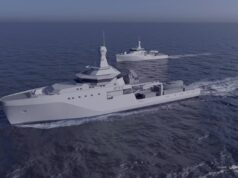
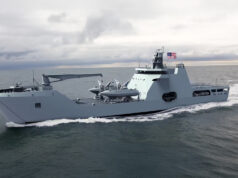
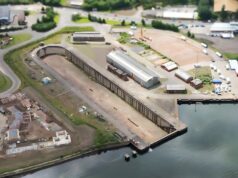
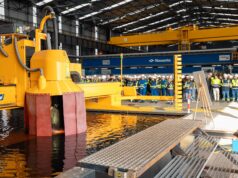


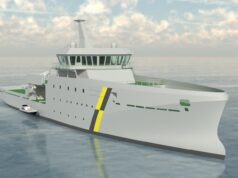

Ferguson can’t build a ferry with unlimited government budget, there is no amount of affordable finance that will ever see Ferguson building commercial vessels for export.
The UK can’t sustain its industrial base to meet its own naval requirements. Why would we want to build an export industry in a notoriously fickle heavy industry and use massive government subsidies to achieve that when we can simply maintain a steady drum beat of work to keep our own navy going.
Shipbuilding is the main reason city’s like Liverpool, Belfast, Glasgow and Newcastle experience high levels of poor health and deprivation even today.
Cities in South Korea and China are experiencing the same problems today.
People need to give up this fantasy in commercial ship building.
I suspect the health levels in Glasgow, Newcastle, Belfast and Liverpool are more to do with alcohol consumption 😂
The never ending moan from elements of Scottish industry. “More money from government”, or this might happen. Look, the UK is broke end of, and heading for the biggest nosedive since the 60’s and 70’s. There is no money, and if we need a hull or five? Buy from a foreign yard.
Or relocate to England, where some work on ships of all types would be welcome.
Scots gravytrain.
@George
This is pretty relevant
https://www.bbc.co.uk/news/articles/cwy0q5nv829o